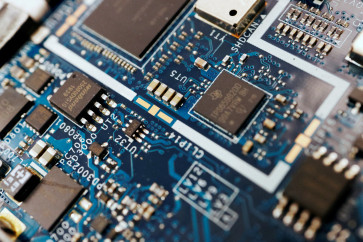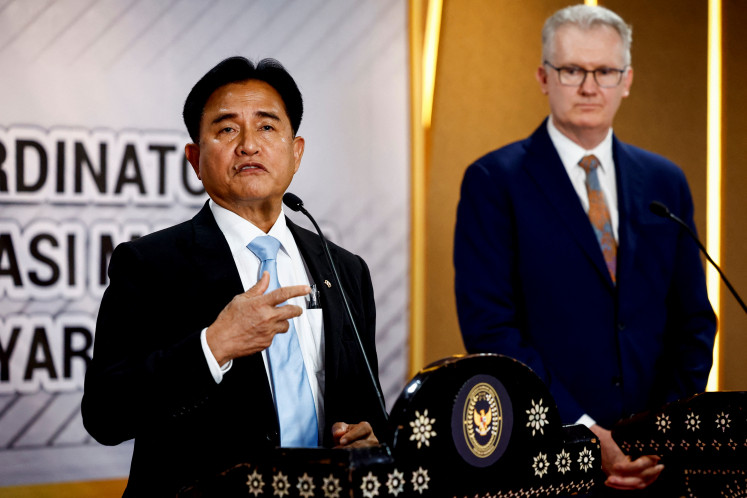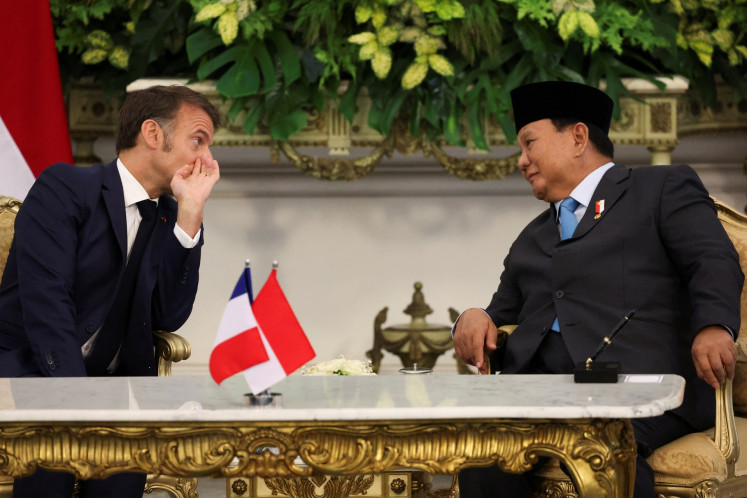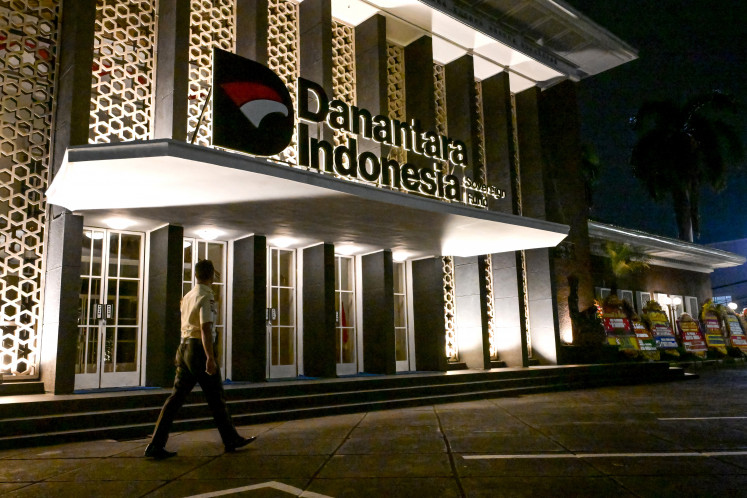Doubt as govt plans high-speed rail subsidy
Train likely to serve upper-middle-class passengers.
Change text size
Gift Premium Articles
to Anyone
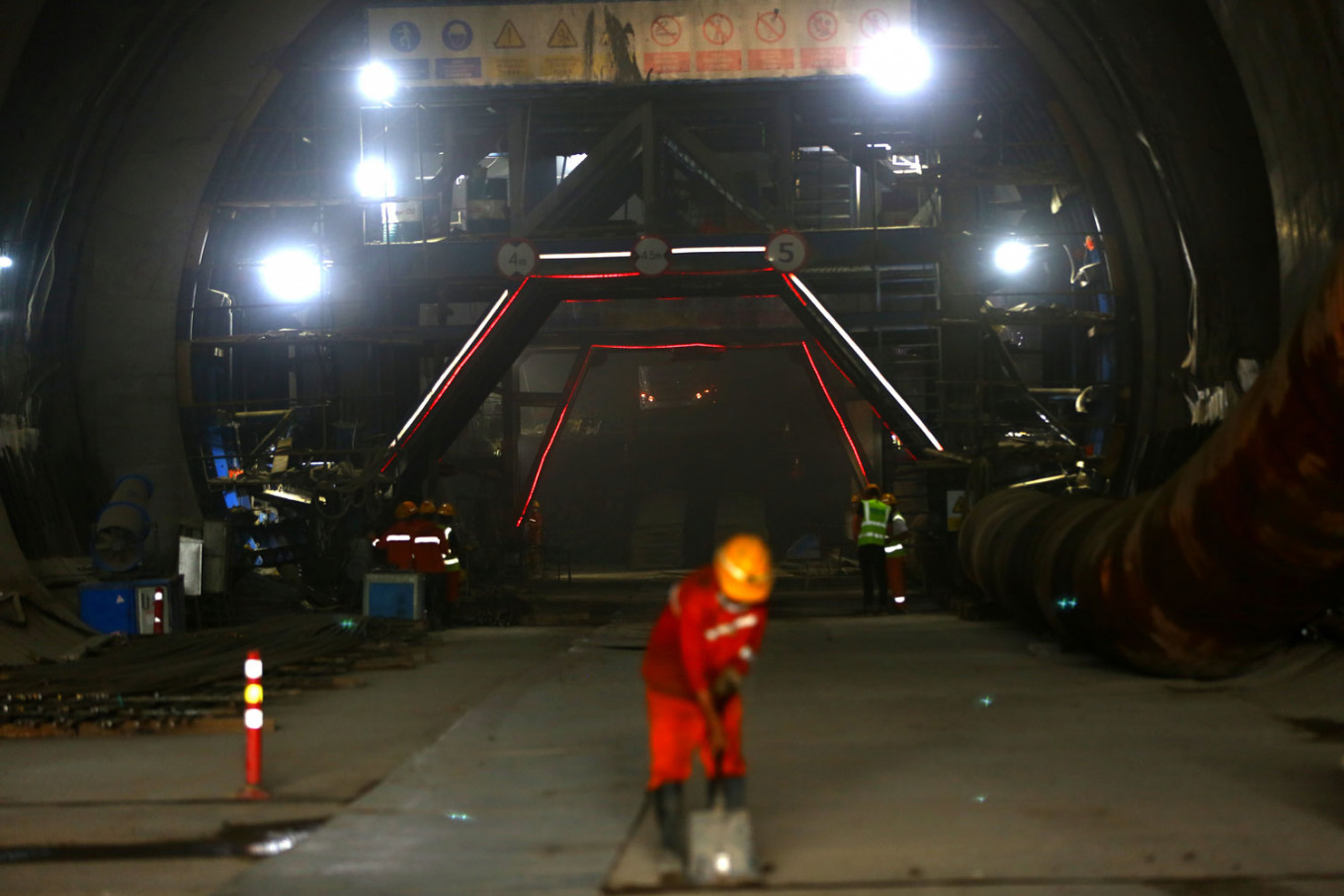
T
he government has decided to subsidize ticket fares for the Jakarta-Bandung high-speed railway in a bid to increase consumer purchasing power and attract passengers, but experts have questioned the decision, given the upper middle class target market.
President Joko “Jokowi” Widodo said on Thursday that tickets for the high-speed train will be subsidized, like other forms of mass transportation in the country.
Jokowi hopes a subsidy will bring ticket prices down and entice people to use the train vis-à-vis private vehicles.
Kereta Cepat Indonesia China (KCIC), the consortium responsible for building and operating the railway, has proposed a ticket price of Rp 250,000 (US$16.30) for the longest distance in the first three operational years, much lower than the estimated of Rp 350,000 per passenger without government intervention.
That means the government would need to allocate at least Rp 1.1 trillion a year from the state budget to cover the subsidy, assuming the train will carry 30,000 passengers a day as projected by Polar UI, a testing and modelling provider from the University of Indonesia.
The figure is expected to be on par with the already existing railway line operated by state-owned Kereta Api Indonesia (KAI) that links Jakarta and Bandung at Rp 250,000 per passenger for executive class, just below the most expensive seat in luxury class.
Experts told The Jakarta Post that the decision must be scrutinized, as subsidies should be reserved for the poor, and the railway’s target market consists of the upper and upper middle classes.
Indonesian Transportation Society (MTI) transportation expert Djoko Setijowarno said that subsidizing the high-speed rail is against the law.
“In the law, it was mentioned that the subsidy is just for economy class and commuter, and high-speed rail is similar to executive class, so it doesn’t need a subsidy,” Djoko told the Post on Monday, citing Law No. 22/2009 on traffic and transportation.
He also opined that train services, especially those connecting to Jakarta, have received too many subsidies, giving them an unfair advantage over other forms of transportation and over other regions.
For instance, the commuter line service in Greater Jakarta receives Rp 1.6 trillion in subsidies per year.
In contrast, bus services in 300 cities in less developed regions receive a mere Rp 177 billion in subsidies per year, while inner-city bus rapid transit located in 11 cities such as in Medan, Bogor and Palembang, receive only Rp 500 billion per year.
“Poor people residing in less developed regions do not receive enough subsidies. […] Indonesia is in a public transportation crisis,” Djoko said.
Meanwhile, Institute for Development of Economics and Finance (Indef) executive director Tauhid Ahmad told the Post on Tuesday that the potential subsidy sum is “very large” and the next administration will have to bear the burden given that Jokowi is stepping down in 2024.
Lampung University transportation analyst Aleksander Purba wrote in his research that the high-speed railway project is unlikely to be able to achieve a level of ridership sufficient to cover its costs as currently planned, unless a huge number of highway travelers shift to the train.
This is because of competition from existing regular railway lines and toll roads.
Following Jokowi’s statement on the subsidy, Transportation Minister Budi Karya Sumadi said the Kereta Cepat Jakarta Bandung (KCJB) subsidy will come in the form of state capital injection (PMN) for KAI, which has been decided since three to four months ago, according to Reuters’s interview with the minister, the leader of the consortium, PT KAI, is the one expected to subsidize prices.
Polar UI’s transportation analyst Sutanto Soehodho saw that the subsidy would benefit China as the foreign entity involved in the project, raising the question of whether such measures are needed to save the project.
Moreover, he told the Post on Tuesday, relevant projection calculations to justify the subsidy are nowhere to be found.


